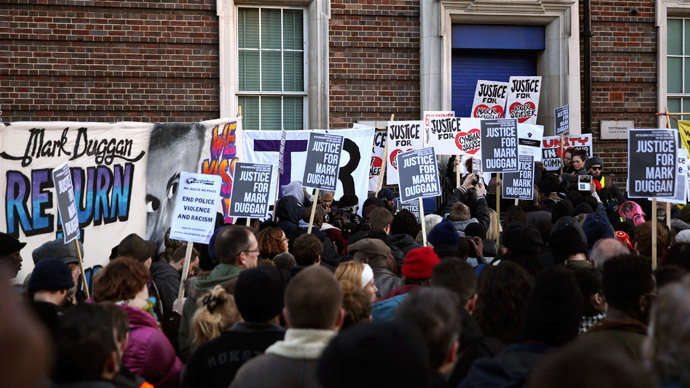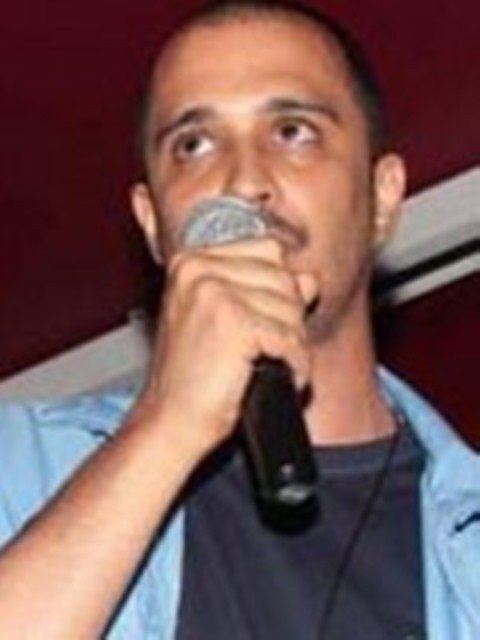Injustice over Mark Duggan case reflects global problem of police incompetence and brutality

The news that the officer who killed Mark Duggan in North London on August, 4 2011 has been cleared of “any wrongdoing” will not come as a surprise to many people.
The Independent Police Complaints Commission’s (IPCC) decision, in spite of all of the questions raised as to the sequence of events which took place that day, is as bizarre as the High Court decision last year which maintained that Duggan's murder was “lawful”.
To say that most people feel the decision of the IPCC is an insult, predictable, and illogical would be an understatement. Time after time we have seen countless inquests and court decisions, which at every juncture have always ensured that the police who break the law have never faced justice. Over several decades in Britain, hundreds of people have lost their lives at the hands of the police, but never have we seen any officers face the very laws they are supposed to implement.
Mark Duggan is one of the many people who fell victim to this reality, and such is the nature and circumstances of his case, that like several others in recent years, it utterly reflects the complete failure of the police, the failure of Trident, and ultimately the IPCC and the justice system at large.
READ MORE: Mark Duggan shooting: Officer cleared of ‘any wrongdoing’ amid police cover-up allegation
Take the case of Jean Charles Menezes for example. The Brazilian mechanic was shot dead on the tube by the Met Police in 2005, after officers acted on incorrect intelligence which suggested Menezes was a dangerous terrorist and therefore a threat to Londoners. Menezes was executed, and shot several times including in the head.It’s clear enough in this case, who committed the act of terrorism. Menezes never stood a chance. All of the officers involved in the events leading up to Menezes' death were cleared of any wrongdoing - despite at least one of them admittedly tampering with evidence and simply getting a slap on the wrist for it.
In 2009, newspaper seller and father, Ian Tomlinson was brutally beaten, and later died from injuries inflicted by then riot police officer Simon Harwood at the G20 demonstrations in central London. The image that remained in many people's minds was the fact that in the moments before Harwood attacked Tomlinson, Tomlinson can clearly be seen with his hands in his pockets walking away from the police.He presented no threat to the public or to the police. The incident was caught on camera, and was also seen by witnesses, but despite this, Harwood never saw a prison cell, was eventually cleared of any wrongdoing, and walked away scot-free.
Mark Duggan's case also tells a similar story in terms of police failings, from the outset to the present day. The media have made much of the gun which was allegedly thrown by Duggan from the car in the moments before he was fatally shot twice - despite the fact that two witnesses who testified, said they saw police remove a gun from the cab before Duggan was shot.It also came to light through the inquest and expert analysis that for Duggan to have indeed thrown the gun where it was allegedly found would have required a physics defying effort, given where the gun was found in relation to where the gun was said to be at the time of shooting. In other words put simply, many believe the gun was planted. At the very least, the inconsistencies in the police account show their version of events to be full of holes.
In addition to these questions, it later transpired that a shot fired by Duggan, was found to be a police issue bullet-a bullet fired by the police.To top it all off, the taxi cab which Mark was travelling in, a crucial piece of evidence, was removed from the crime scene by police during the investigations in the immediate aftermath of the incident, and was then returned.
All of the hallmarks of Duggan's case, just like the other cases briefly outlined, do not exactly paint a picture of the Met's special unit as protecting the public at large.It suggests that they are a threat to the public at large.All the talk in the press sensationalized Mark Duggan as part of some gangland Mafia cult, when in reality he was executed on the street, with his trial taking place in the media in the hours following his death - a trial in which he was found guilty and in which he had no fair representation or voice.
There is indeed a gang though, which operates with impunity in London, killing when they like, comfortable in the knowledge that there is a robust legal system which guarantees their right to do so.That gang is the Met Police. Their safeguard is a corrupt IPCC made up of ex-police officers, and a lackluster judicial system, and compliant media.

Indeed, in the hours immediately following Duggan's killing the IPCC and the media began hammering home the line that Duggan had shot first when Duggan had not fired any gun.
And where have we seen this sequence of events elsewhere? When we learned of the shooting of Mike Brown in Ferguson, in the United States, who was unarmed and was surrendering, we also witnessed his character assassination through the media.
When young Trayvon Martin was shot dead in Florida, his murderer Zimmerman, walked free, and Martin's character was reduced, traduced, and diminished in the press, with the media falling in with the government line.
Britain's Black community, and the wider community at large, is reeling at the IPCC's decision to clear the Met of any wrongdoing in the Mark Duggan case. But the murder of the 29-year-old and the relentless campaign in the media to demonize him reflects a pattern that we sadly see echoed around the world. From Britain, to Brazil, to Australia and the United States, some of the poorest and most disenfranchised communities are brutalized by the police at the behest of the state, which increasingly represents the interests of the powerful.
Instances of police brutality are often presented in isolation, the politics removed, with the role of the police and police watchdogs ignored. Emphasis and responsibility is then placed on the victim.
The police are made up of people, and as such there must exist those who enter the profession with the desire to actually serve and protect the public. But those voices within their ranks are often reluctant to speak out about the endemic corruption they often see. Indeed, whistleblowers do not seem to suffer a good fate nowadays, and the upper ranks of this institution seem as unreflective, incompetent, and out of touch as the rest of the British establishment. Change will need to come from within, but as long as the IPCC exists, providing a fig leaf of accountability, and creating the impression that there is actually an impartial and transparent body monitoring the police things will move slowly.
The ones who must really hold the police to account are the British public, by ultimately holding our politicians to account. We may be some way off, but what is needed is the will to force the issue of deaths in police custody back on to the political agenda.We may have to take giant steps in the next few years to achieve this, but while we call for justice today, it’s crucial that at the same time we educate and empower the next generation to be able to confront these fatal institutional failings head on for the sake of tomorrow.
The statements, views and opinions expressed in this column are solely those of the author and do not necessarily represent those of RT.
The statements, views and opinions expressed in this column are solely those of the author and do not necessarily represent those of RT.













